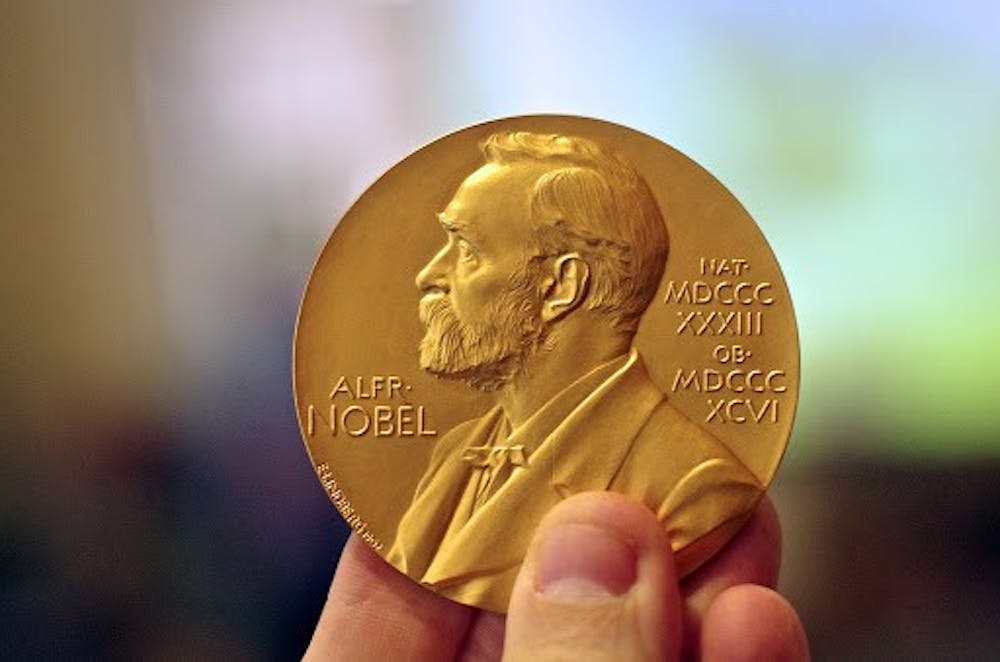In the first week of October, the Nobel prize committees announced the laureates of the 2018 Nobel Prize.
This year, two women won Nobel Prizes in scientific disciplines. Donna Strickland, an optical physicist, invented chirped pulse amplification with her co-awardee Gérard Mourou. Strickland is only the third female physicist to receive the award and the first in 55 years.
In an interview with All Things Considered on National Public Radio (NPR), Strickland voiced her pleasure at being in the company of past female awardees Marie Curie and Maria Goeppert Mayer.
“I feel unbelievably honored to be, you know, with Marie Curie and Goeppert Mayer. It’s like, how can I be in the same breath as those three?” Strickland said.
Biochemical engineer Frances Arnold won the Nobel Prize in Chemistry. The announcement of the award released by the Royal Swedish Academy of Sciences stated that she won for conducting the first directed evolution of enzymes. The enzymes can be used to produce renewable fuels or manufacture chemical substances in a more environmentally-friendly manner. She shared the award with George Smith and Gregory Winter.
Arnold is only the fifth woman to receive the Nobel Prize in Chemistry.
This year marks the first time that women have been awarded a chemistry Nobel and a physics Nobel in the same year. Of the 599 scientific Nobel medals ever awarded, only 18 have been awarded to women. That constitutes about 3 percent of the science prizes.
The slow pace of progress in recognizing scientific achievement by women was especially evident in 2017, when there were no female awardees for the second year in a row.
Strickland said that she did not notice the lack of female awardees when she found out about the award. She said that being in a male-dominated field has desensitized her to a certain degree.
“I hadn’t looked at all the Nobel Prizes and thought, my goodness, there’s no women. So, it was a little bit surprising to me. But, I mean, I do live in a world of mostly men, so seeing mostly men doesn’t really ever surprise me either,” Strickland said.
The lack of female representation is not lost on the committees that are involved in choosing the winners.
Göran Hansson, secretary-general of the Royal Swedish Academy of Sciences, said that, for the first time, the committee will send out invitation letters which explicitly encourage nominators to consider diversity for the 2019 prizes.
“We don’t work in a vacuum. We need the scientific community to see the women scientists, and to nominate those who have made outstanding contributions,” Hansson said, according to Nature.
Hansson estimates that, of the 500 or so scientists each committee picks, the representation of women has roughly doubled to an average of around 25 percent.
Amending the wording of the invitation letter is not the only way that the committees are attempting to correct the gender imbalance.
According to Nature, the secretary-general of the Nobel Assembly, Thomas Perlmann, said that the Assembly is inviting more women and junior scientists to nominate scientists for the award. He says that the Assembly has noted that women do have a slightly higher probability of nominating other women.
Curt Rice, head of Norway’s Committee for Gender Balance and Diversity in Research, believes that gender equality measures may be met with opposition because some worry that they risk reducing the quality of the award.
“The idea that there aren’t high enough quality women in those fields is ridiculous,” Rice said, according to Nature.
Speaking at a news conference at the California Institute of Technology, Arnold expressed hope about increasing the number of women Nobel awardees.
“As long as we encourage everyone — it doesn’t matter the color, gender; everyone who wants to do science, we encourage them to do it — we are going to see Nobel Prizes coming from all these different groups. Women will be very successful.”





